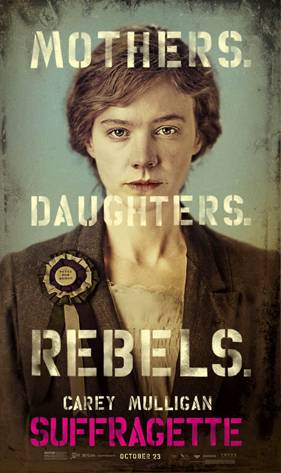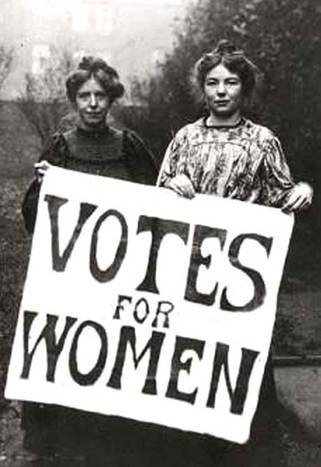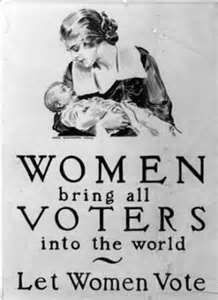Film (2015)
Directed by Sarah Gavron
Screenplay by Abi Morgan
With Carey Mulligan (Maud Watts), Adam Michael Dodd (George Watts), Ben Whishaw (Sonny Watts), Anne-Marie Duff (Violet Miller), Helena Bonham Carter (Edith Ellyn), Finbar Lynch (Hugh Ellyn), Meryl Streep (Emmeline Pankhurst), Brendan Gleeson (Inspector Arthur Steed)
Maud Watts (Carey Mulligan) is a young mother of a small child who she adores. She works in a washing factory and, as a woman, has to suffer the tyrannies of an unscrupulous boss. The women’s movement for suffrage led by Emmeline Pankhurst (Meryl Streep) is growing and a fellow worker draws her in. Maud meets Edith Ellyn (Helena Bonham-Carter), a physician who is deeply engaged in the movement, and gradually becomes drawn in, with dire and significant effects upon her work and her life.
Finally, Carey Mulligan is getting roles she deserves. Earlier in the year, she appeared in the very good Far From The Madding Crowd, and here she has a starring turn that deserves attention as well. She has a quietly reflective grace, a warm presence and an underlying intelligence she delivers to her characters while faithfully rendering them in their own terms. Her Maud, here, is a forthright figure who suffers through the consequences of political commitment, and Mulligan carries it off with an appealing straightforwardness. She gives a true sense of Maud’s evolution from a relative unknowing bystander to an integral force in the movement; the growth of commitment is palpable and believable, largely due to Mulligan’s rendering.
The other characters – Edith Ellyn (Bonham-Carter), Natalie Press, who portrays Emily Wilding Davison who jumped in front of a horse in protest at the King’s Derby in 1913, and Violet Miller (Anne-Marie Duff), the friend at the laundry, all do respectable jobs, as does, of course, Meryl Streep (Emmeline Pankhurst) in what is effectively a cameo role. As husbands of very different stripes, Adam Michael Dodd (George Watts) and Finbar Lynch (Hugh Ellyn) provide strong impressions.
Centrally, the film belongs to Mulligan, however, and it rides largely upon her, enabling the focal theme, the early and ferocious battle for women’s rights, to be passionately rendered.
Historically faithful, the film exhibits violence. Providing the repeated account that women had promoted their efforts at equality peacefully for fifty years before they took to arms, the film portrays that violent resistance without specifically calling it into question. One naturally thinks of the nonviolent resistance movements led by Gandhi and Martin Luther King in ensuing decades and one naturally is inclined to reflect on the methods of the suffrage movement in Britain in the earlier part of the century. The film acknowledges the movement, appropriately and sympathetically portrays its proponents, and depicts its militant strategies and techniques without giving a thorough sense of their justification, which one might regard as a limitation.
– BADMan



Leave a Reply